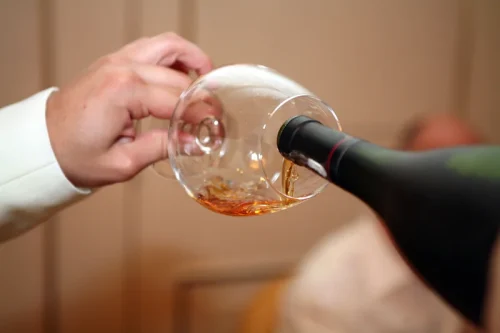
This is the case with all alcoholism and drug treatment approaches, because every person deals with and recovers from addiction in a different way. Cognitive behavioral therapy is a well-established therapeutic approach that focuses on identifying and changing negative thought patterns and behaviors. It has gained prominence as an effective method for addiction treatment and relapse prevention. While reliance on the results of the functional analysis makes skillstraining particularly well suited for individual therapy, theseinterventions can easily be adapted for use in group settings (Monti et al., 1989). Similarly, theycan be used with inpatients or outpatients and can be administered as partof an intensive phase of treatment or as part of less intensive aftercare orcontinuing care.
- It was developed more than half a century ago by American psychiatrist Dr. Aaron T. Beck and is commonly used to treat various mental health disorders, such as anxiety, phobias, personality disorders, schizophrenia, marital discord, and substance abuse.
- In addition,the therapist might provide the client with self-help manuals thatoutline the specific steps in the behavioral self-control process.Self-monitoring of substance abuse behavior is one form of writtenhomework common in behavioral approaches; other types of homework mightalso be used.
- However, it should be applied together with other treatments, either psychotherapy or medication, in most cases.
- A sizable percentage of Americans with a substance use disorder are diagnosed with, or meet the criteria for, a mental health disorder such as anxiety or depression.
- More than 53 randomized controlled trials on alcohol and drug abuse were examined to assess the outcomes of CBT treatment.
What Is Cognitive Behavioral Therapy Used For?
You can work with your therapist on the techniques that work for you and your unique situation. In CBT, the B, or your beliefs, is considered the most important, as it helps you change your beliefs to have better consequences, or outcomes. Instead of looking backward, which is a very important thing to do in other kinds of therapy, it works well for people to gain insight as to why these things occurred,” explains cbt interventions for substance abuse Dr. Robin Hornstein, a Philadelphia-based psychologist who works with a variety of populations using CBT as well as many other therapies. In June 2020, 13 percent of people in the United States either started using substances or increased their use as a way to cope with the COVID-19 pandemic. Listen to Greenhouse Treatment Center‘s Gary Malone, MD discuss the role of therapy in addiction treatment.
Your addiction does not have to define who you are.

The fundamental principle of cognitive behavior therapy is to address harmful thought patterns and implement more positive ways of thinking in people. Cognitive behavioral therapy techniques include relaxation exercises, being more assertive, improving insight, modifying thinking patterns, and monitoring and correcting negative behaviors. Efforts are now underway to transfer research-developed practices into community settings through the NIDA Clinical Trials Network and numerous bridging the gap meetings and conferences [119].

Effectiveness of CBT for Alcoholism and Addiction

Other efforts to increase access to CBT and other evidence-based treatments for SUDs are also underway.[75-77] Future research focusing on methods to bridge the gap between theory and practice in a way that supports community clinicians so that systemic change can truly be effective is of particular importance. Through the use of problem-solving exercises and the development of a repertoire for emotion regulation, the patient can begin to both determine and utilize non-drug use alternatives to distress. Strategies for coping with negative affect, such as using social supports, engaging in pleasurable activities, and exercise can be introduced and rehearsed in the session. The development of pleasurable sober activities is of particular importance given the amount of time and energy that is often taken for substance use activities (i.e., obtaining, using, and feeling the effects of substances). When reducing substance use, patients can be left with a sense of absence where time was dedicated to use, which can serve as an impediment to abstinence. Thus, concurrently increasing pleasant and goal-directed activities while reducing use can be crucial for facilitating initial and maintained abstinence.







